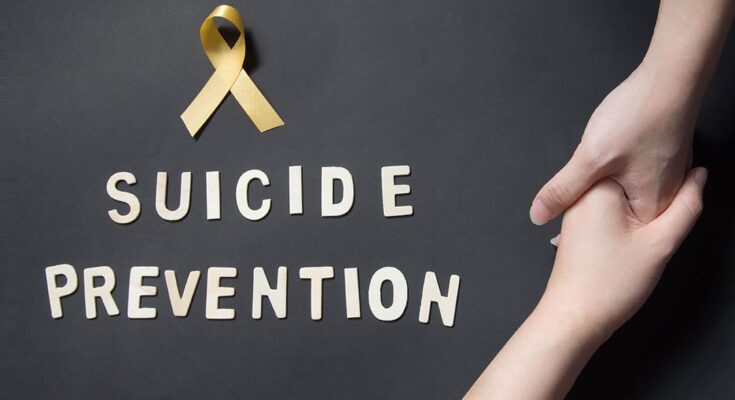By Ejiofor Toochi
Hopeless. Lost. Useless.
This is how Daniella (name changed for privacy) felt when she was 20 years old. Life had come to a standstill for her. Nothing—work, school, or life in general—was going well. In an attempt to escape those feelings and avoid being a burden to her family, she contemplated ending her life by slitting her wrist with a knife.
“I didn’t know what I was doing. I felt stagnant and lost, doing nothing. We had just come out of COVID-19, and I was preparing for the crossover vigil, but I felt useless. Nothing was going smoothly, not even for my family,” Daniella explained.
“But then, I started thinking about how taking that step would affect my family and the consequences beyond this life. I realized I had so much ahead of me. I held on tightly to my faith as a Christian, constantly reminding myself of how much God loves me. That thought brought warmth and comfort. Some days aren’t pleasant but eyes on the ball. I cry, look for alternatives, talk to God—when people see me do that it feels as if I’m moving mad. I call my friend in Port Harcourt and I breathe.”
Daniella’s story is far too common. At certain difficult points in life, many have harbored the thought of suicide as an escape from their many troubles. While some, like Daniella, manage to find a reason to hold on, others are fortunate enough to be saved, and sadly, others don’t share the same luck.
This is why every year on September 10th, World Suicide Prevention Day(WSPD) is commemorated with the aim of raising awareness about suicide prevention. The theme for this year, ‘Changing the Narrative on Suicide,’ focuses on the critical need to reduce stigma and promote open discussions about prevention strategies.
Changing The Narrative on Suicide
In Nigeria, there is a stigma which surrounds discussing mental health struggles, often leaving individuals feeling isolated and unsupported. As a result, many turn to suicide instead of seeking help.
According to the World Health Organization (WHO), over 720,000 people die by suicide each year, making it the third leading cause of death among 15–29-year-olds. About 73% of these suicides occur in low- and middle-income countries, influenced by a range of social, cultural, biological, psychological, and environmental factors. “For every suicide there are many more people who attempt suicide.”
With the rising number of suicide cases in Nigeria each year, there is an urgent need to increase awareness, support, and resources to address mental health challenges and prevent suicide. It is crucial for Nigerians to understand that suicidal thoughts can affect anyone, regardless of their background, success, or outward appearance. Seeking help should never be something to fear, and it’s crucial to foster a supportive environment in Nigeria where individuals don’t feel stigmatized.
Solutions and Seeking Help
For those struggling with mental health challenges or experiencing suicidal thoughts, it’s essential to speak up—whether to family, friends, or professionals. Like Daniella, many people conceal their pain, feeling too ashamed or afraid to seek help. This is why reaching out, whether through a phone call, text, or a simple check-in, can be life-saving.
Daniella advises that people should focus on what brings them happiness, connect with God, avoid overthinking and depressing news, surround themselves with supportive individuals, and engage in good deeds.
To support those in need, various agencies have been established to provide assistance through hotlines and counseling services. Notable organizations include Human Development Initiative, Nigeria Suicide Prevention (NSP), Suicide Research and Prevention Initiative (SURPIN), She Writes Woman, and Mentally Aware Nigeria Initiative (MANI).
READ ALSO: “Nigerians Need More Mental Health Support”








